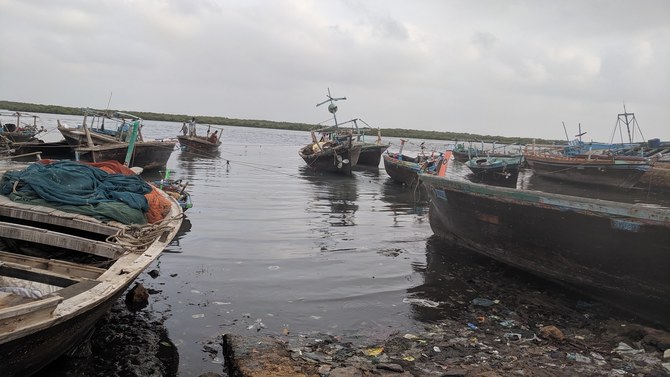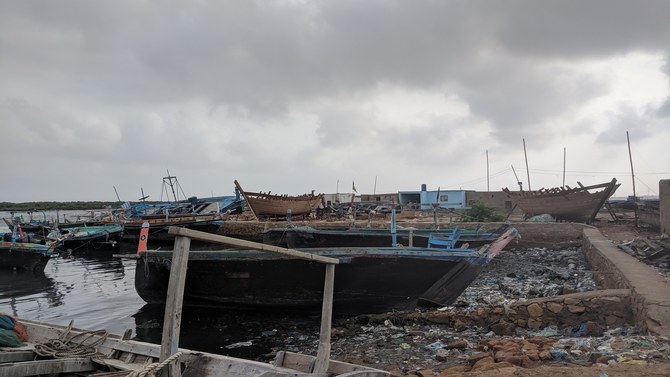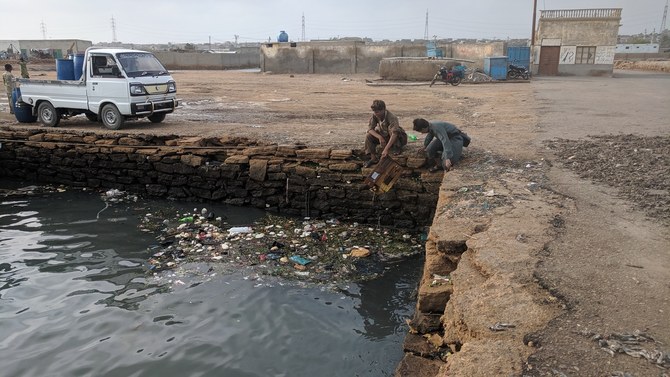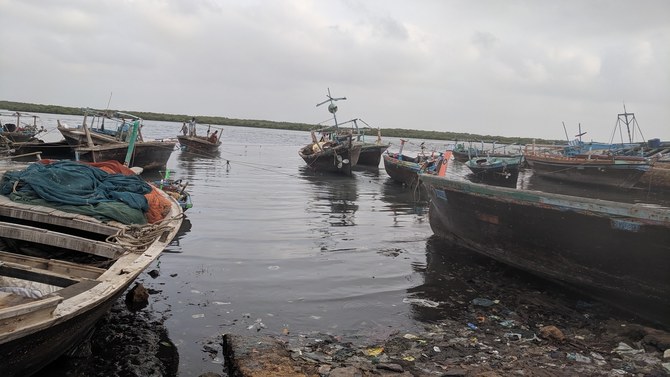KARACHI: In a century old fishing village near a popular beach in Pakistan’s teeming port city of Karachi, clean water is “like gold” as a polluted sea brings fatal diseases to the thousands of people who depend on it for their livelihood.
The fishing village, called Abdul Rehman Goth, is one of 32 villages in Deh Lal Bakhar, where the only reverse osmosis (RO) plant has been lying derelict for a decade. Instead, in the rainy season, water tankers bring in the area’s most precious commodity from a local dam- water- which costs poor villagers a small fortune at Rs. 1,200 ($7.5) per 800 gallons.
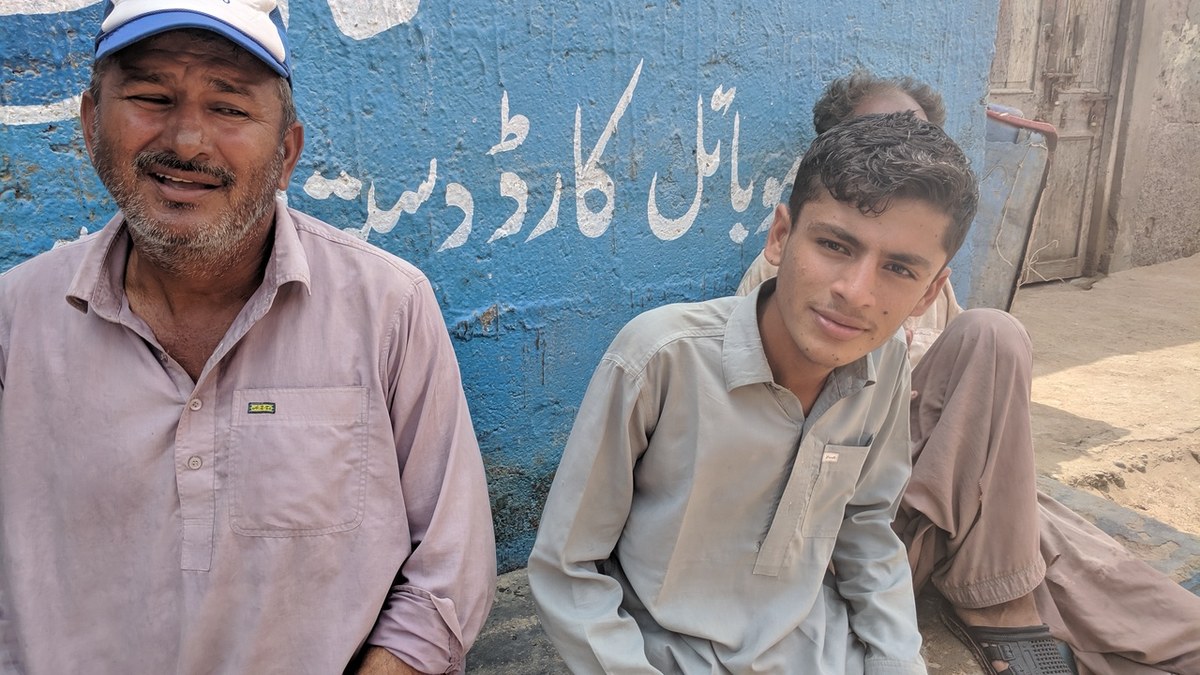
Niaz Ahmed (L) speaks to Arab News about the water-related health problems of his son, Sher Jan ( R), who lost a kidney due to repeated use of contaminated water in Karachi’s Abdul Rehman costal village. August 6, 2019 (AN Photo)
But even this water is visibly dirty, residents say, and unfit for human consumption.
“Though expensive, this water is still not drinkable. Even donkeys wouldn’t drink it, but we are forced to,” Abdul Wahid, a village elder told Arab News, as he held up a murky cup of water.
“This contaminated water costs us Rs. 1,200. Luckily, these days there is water in the dam due to rains. When it dries up, we will have to pay Rs. 2,500 ($16) per tanker which will bring us water from Hub in Balochistan,” he said, referring to a city in Pakistan’s southwestern province almost 50 km away.
“Water is like gold for us,” he said, holding out and rubbing his arms, badly infected with a skin condition.
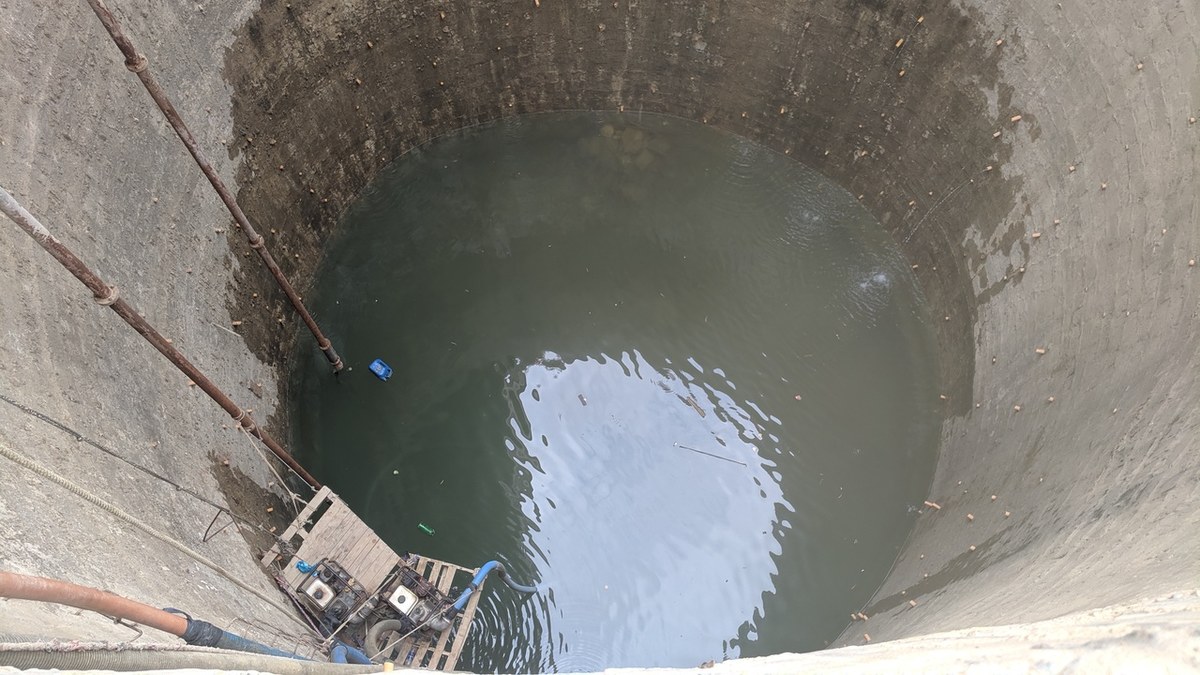
Murky water with visible contamination in the water tank of Deh Lal Bakhar dam in Hawksbay town of Karachi. August 6, 2019 (AN Photo)
The story of over a hundred villages on Karachi’s eastern coast is similar, as the city’s population ballooned from about two million in 1960 to an estimated fifteen million today. Heaps of garbage and waste generated by the metropolis, alongside thousands of textile, plastics and chemical factories, flows straight into the Arabian Sea.
Niaz Ahmed, 45, another village resident, said he had repeatedly ignored the serious warnings of doctors, who had told him that his wife and son might die of kidney failure if they continued to drink and use contaminated water.
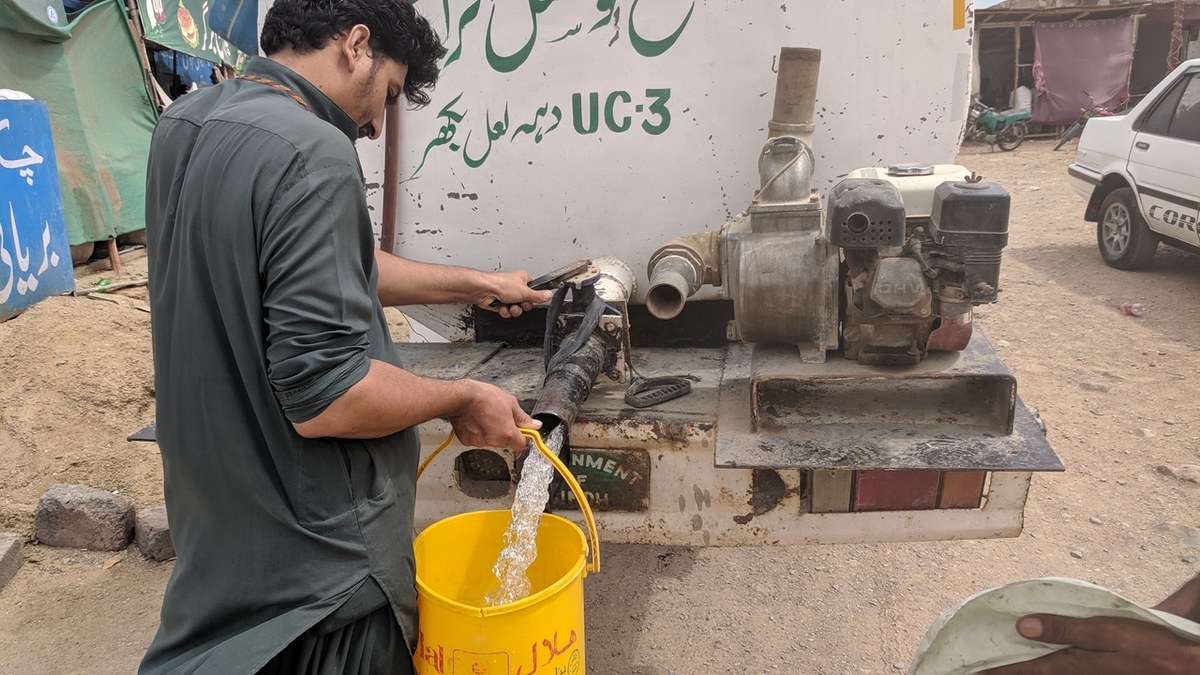
A man fills up water from a tanker of Union Council-3 of Deh Lal Bakhar in Karachi. A small tanker of 800 gallon unfiltered water in the rainy season costs Rs.1,200 ($7.5). August 6, 2019. (AN Photo)
“In 2011, one of my wife’s kidneys failed and two years later the doctors had to remove my son’s kidney as well,” he told Arab News, and added he was one of the lucky ones because in both cases, only one kidney had failed.
“They are surviving with one (kidney),” he said, and added, “How can I afford mineral water?“
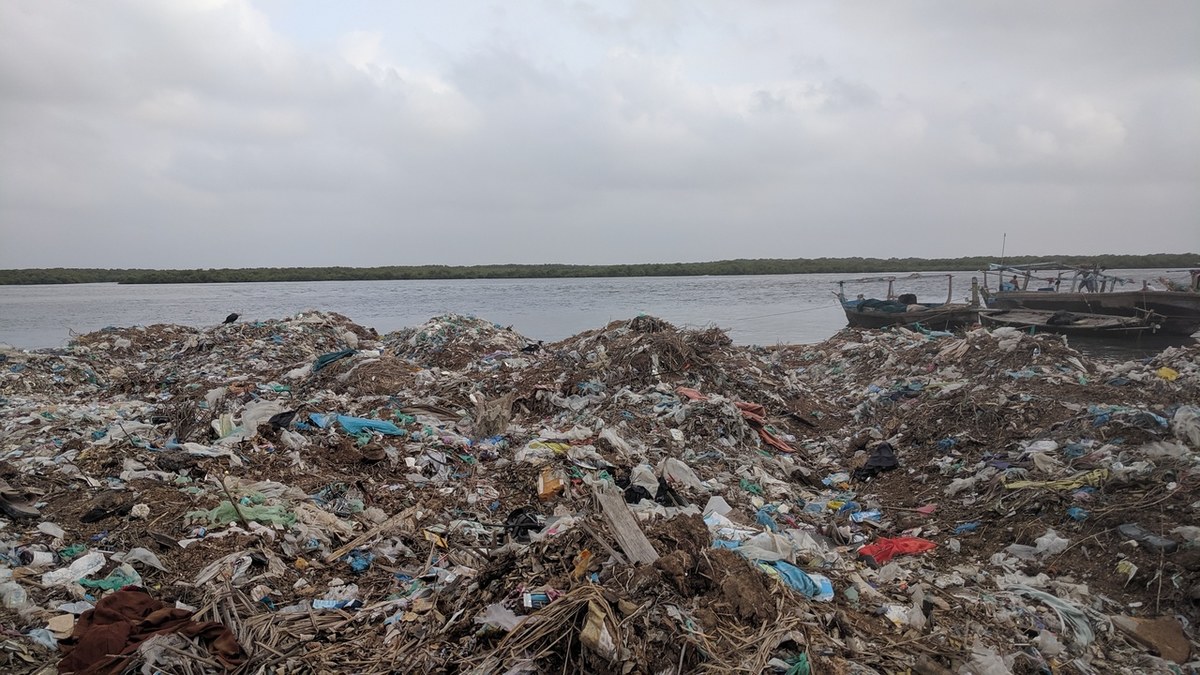
Piles of waste and trash at Rehri Goth, a coastal village in Karachi. August 6, 2019 (AN Photo)
Karachi has only three functional wastewater treatment plants, with the responsibility for industrial waste disposal largely that of individual businesses. As a result, each day, 350 million gallons of raw sewage from the city flows into the harbor, according to a 2015 Washington Post report.
Village elder Abdul Wahid, said that in a little over a year, six people in his village had died of kidney failure.
“This is not the only disease,” he said. “Everyone has infectious diseases, most frequently skin itching as we have to use seawater for bathing and washing dishes,” he said.
Despite the squalor among these communities, alarming water pollution levels have not prevented Karachi’s affluent families from building sprawling waterfront villas and wealthy businessmen from investing in bustling restaurants facing the sea and boasting fresh seafood on their menus. Nearby, wobbly fishermen boats dock in heaps of waste that line large swathes of the coast.
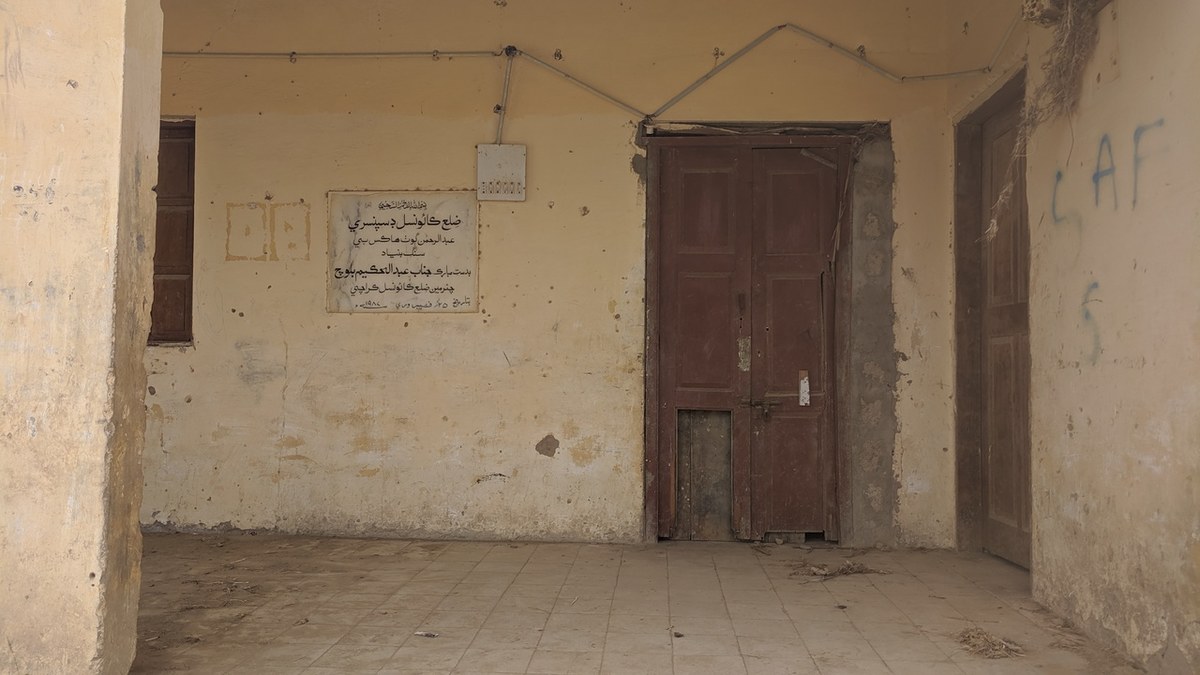
The only dispensary in Abdul Rehman Goth of Deh Lal Bakhar, established in 1987, has been closed for years. Locals of coastal villages have no access to basic health facilities. August 6, 2019 (AN Photo)
“Look at that black colored water, look at this floating waste. It was never like this before,” 62-year-old Allah Bux, a fisherman in Rehri Goth coastal village, told Arab News.
Nearby, there stands a small nuclear reactor that Canada built for Pakistan in the 1970’s.
“The contaminated water may have radioactive substances which cause kidney damage,” Dr. Abdul Manan, a Karachi based medical expert said.
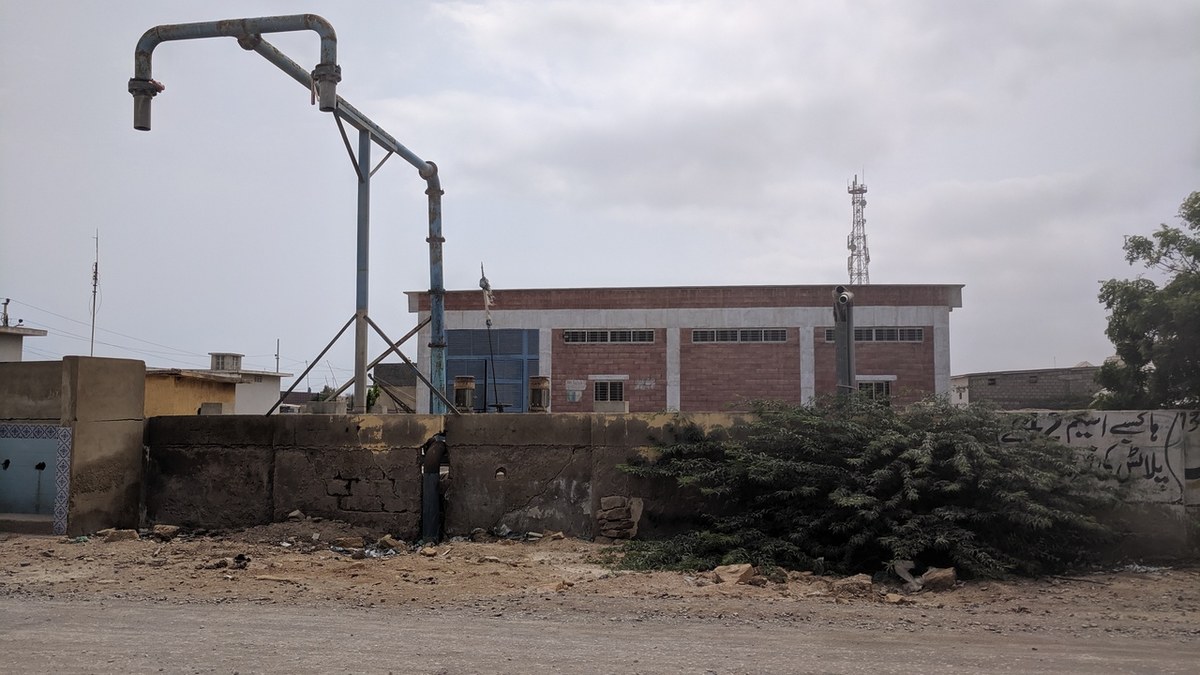
The water treatment plant at Deh Lal Bakhar has been closed for several years, locals told Arab News. August 6, 2019 (AN Photo)
But the fishing communities of Pakistan’s largest city have little choice, and few resources available to seek a better way of life.
Though authorities set up a hospital in the Rehri Goth area in 2005, for years it was a ghost facility and entirely non-functional. A dispensary, established in Abdul Rehman Goth on Western coast in 1987, has been shuttered down for years.
“We give our patient painkillers at home and when the situation is serious, we take them to the city’s civil hospital,” Wahid said. “Some get well and some have to return as dead.”

Deh Lal Bakhar dam is the only water source of the Deh's 32 villages, but tanker' drivers are unable to reach every village, driver Riaz Ahmed told Arab News. August 6, 2019. (AN Photo)
Earlier this year, as part of a $6 billion International Monetary Fund bailout, Pakistan’s government agreed to stringent tax reform and collection measures which have seen inflation levels soaring to all-time highs, and impacting some of the country’s poorest communities.
“This morning, a government employee came and asked the shopkeepers about their income,” Wahid said.
“They never come to note if we have a school, a hospital or drinking water. But they want this small shopkeeper earning a few hundred rupees daily to come under their tax net,” he said.

A fisherman walking along a strip of the Rehri Goth fishing jetty as the coast teems with garbage and waste. August 6, 2019 (AN Photo)
Then he brought a small cup of brown water to his lips and sipped it slowly.


